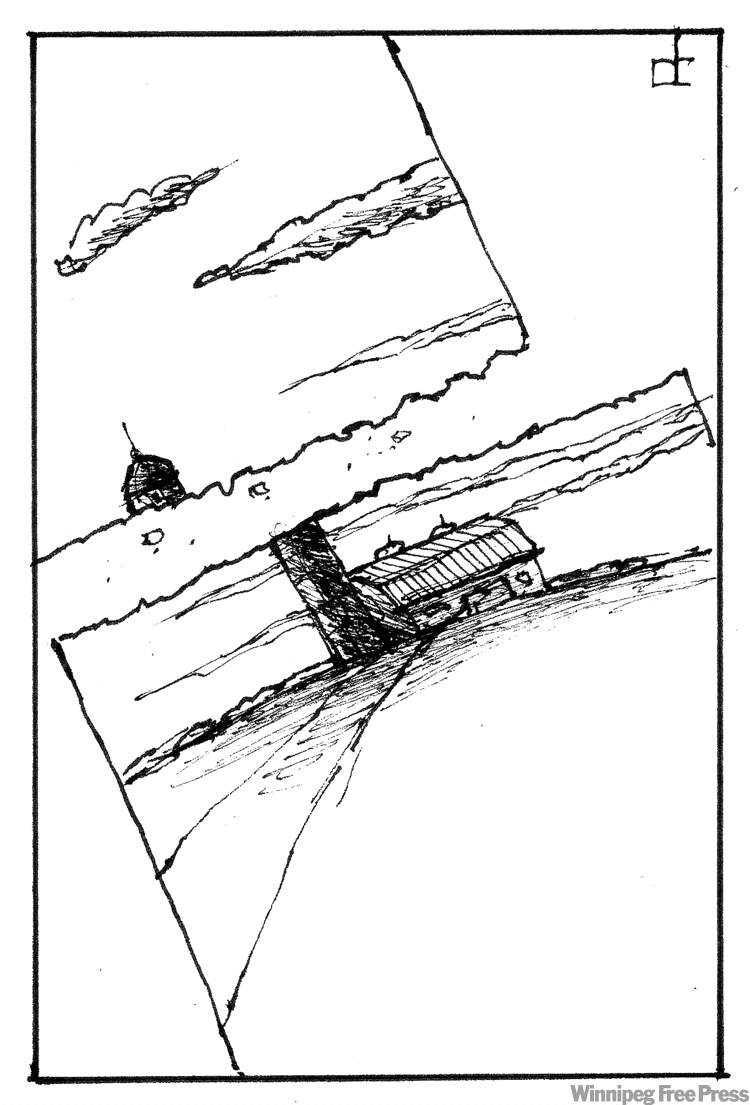Loophole penalizes women
Advertisement
Read this article for free:
or
Already have an account? Log in here »
To continue reading, please subscribe:
Monthly Digital Subscription
$0 for the first 4 weeks*
- Enjoy unlimited reading on winnipegfreepress.com
- Read the E-Edition, our digital replica newspaper
- Access News Break, our award-winning app
- Play interactive puzzles
*No charge for 4 weeks then price increases to the regular rate of $19.00 plus GST every four weeks. Offer available to new and qualified returning subscribers only. Cancel any time.
Monthly Digital Subscription
$4.75/week*
- Enjoy unlimited reading on winnipegfreepress.com
- Read the E-Edition, our digital replica newspaper
- Access News Break, our award-winning app
- Play interactive puzzles
*Billed as $19 plus GST every four weeks. Cancel any time.
To continue reading, please subscribe:
Add Free Press access to your Brandon Sun subscription for only an additional
$1 for the first 4 weeks*
*Your next subscription payment will increase by $1.00 and you will be charged $16.99 plus GST for four weeks. After four weeks, your payment will increase to $23.99 plus GST every four weeks.
Read unlimited articles for free today:
or
Already have an account? Log in here »
Hey there, time traveller!
This article was published 18/07/2011 (5249 days ago), so information in it may no longer be current.
There is a notion that when a marriage dissolves, spouses split the shared assets or the value of the assets accrued by the family. Canada’s bankruptcy legislation throws that premise under the bus. The case of Susan Schreyer illustrates how this happens.
Susan Schreyer’s marriage broke up in 1999. In Manitoba, rather than forcing the division of marital assets, provincial legislation triggers the valuation of the assets and then division of that value. Under the law, Ms. Schreyer was owed more than $41,000 by her former husband, Anthony Schreyer, who held sole title to the family farm. But Mr. Schreyer, unbeknownst to her, had filed for bankruptcy and Canada’s Bankruptcy and Insolvency Act protects farm property from seizure by creditors, including ex-spouses owed “equalization” payments. Ms. Schreyer, who worked low-wage jobs to raise three children in Somerset, with some child support from her ex-husband, has yet to see a penny of the money owed her from the family farm.
Parliament was wise to exempt child support and maintenance from the bankruptcy act, in effect preserving the legitimate financial responsibility that continues after divorce. But it has yet to heed a recommendation from a Senate committee, which in 2003 pointed out the injustice — largely to women — of not exempting from bankruptcy the settling of the accounts of marital assets. The Supreme Court of Canada, in a ruling Thursday on the Schreyer case, underscored the unfairness of the law, calling the attention of Parliament to it. Not only did Mr. Schreyer retain the home, his bankruptcy also allowed him to keep 160 acres, farm buildings, tools and implements.

Lawyer Alain Hogue points out the federal bankruptcy law also protects pensions from creditors, which means that in Manitoba (and other provinces that divide value of assets, as opposed to marital assets themselves) one spouse’s Canada and private pension plans could be beyond the reach of another.
The principle behind division of the assets of the family is that both partners in the marriage contributed equally to the family’s livelihood and its wealth. Manitoba’s system of adding up the value of all assets and dividing that between the two parties, in effect, turns former spouses into creditor or debtor. That works well enough until the law gets in the way, as it did in Ms. Schreyer’s claim on the farm’s value.
Manitoba could change its system of division of the value to a straight division of the assets. But that would not cure the problem that exists in other provinces that follow the same formula of “equalization.”
There is no good explanation for why, having recognized the justice of preserving a parent’s ongoing financial obligations post-divorce, Parliament did not also ensure the bankruptcy law respected a spouse’s financial claim on a family farm and on pensions accrued during marriage, in the event of a bankruptcy. This gap disproportionately penalizes women, another point made boldly by the Senate committee in 2003. The Harper government cannot ignore the injustice, and ought to amend the Bankruptcy and Insolvency Act to close a loophole that swallows the unsuspecting.


